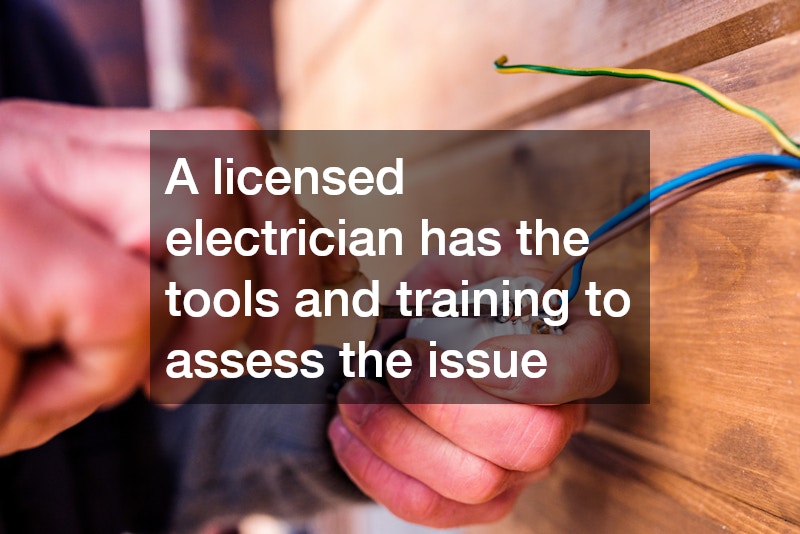When your air conditioning system starts acting up, it’s easy to assume the unit itself is to blame. But in many cases, the root of the issue is electrical — not mechanical. Faulty wiring, power irregularities and damaged components can prevent your air conditioner from operating efficiently or safely. That’s why it’s important to know when the problem goes beyond basic maintenance and requires the attention of a licensed professional.
1. The Circuit Breaker Keeps Tripping
One of the most common indicators of an electrical issue is a circuit breaker that repeatedly trips when your air conditioner is in use. While an occasional trip can occur due to a temporary power surge or system overload, persistent tripping signals something more serious.
It may indicate that the AC unit is drawing more power than the circuit can handle, or that there is a short circuit or ground fault in the wiring.
In either case, continuing to reset the breaker without addressing the underlying issue can be dangerous. Overloaded circuits generate excess heat, which increases the risk of electrical fires — particularly if the wiring is old or damaged. A licensed electrician will be able to diagnose the source of the problem and determine whether the issue lies within the air conditioning unit itself or your home’s electrical system.
In some situations, the circuit may need to be upgraded to handle the load of the AC unit, especially if the system was installed in a home with an outdated switchboard or limited capacity. Ignoring repeated tripping is not only inconvenient but potentially hazardous, so it’s best to get a professional to assess the situation as soon as possible.
2. The AC Unit Is Unresponsive or Only Works Intermittently
Another red flag that calls for an electrician is an air conditioner that turns on and off at random, fails to start entirely or operates inconsistently. These types of issues are often caused by faulty wiring, failing capacitors, damaged relays or issues with the unit’s control board — all of which fall under electrical faults.
Modern air conditioning systems rely on a network of sensors, switches and electronic controls to regulate temperature and airflow. When one of these components malfunctions, it can result in erratic behaviour, such as blowing warm air, starting and stopping unexpectedly or failing to maintain the set temperature. While some of these problems could stem from the internal components of the AC unit, they’re often linked to the electrical supply or communication between the thermostat and the system.
A qualified professional can inspect the wiring connections, test the voltage and determine whether any of the system’s electrical parts have failed. They can also verify that the thermostat is receiving the correct signal and that the unit is grounded properly — both essential for safe and reliable performance.
If the issue is left unchecked, intermittent performance may cause the system to overwork itself, reducing efficiency and increasing wear and tear on components. Early intervention by a professional helps ensure the problem doesn’t worsen and prevents unnecessary strain on your air conditioning system.
3. Burning Smells, Scorch Marks or Buzzing Sounds
Any unusual smells, sounds or visual signs of damage around your AC unit should be taken seriously. A burning odour when the system is running may point to overheating wires or melted insulation, both of which present a serious fire risk. Similarly, if you notice scorch marks around power outlets or the electrical panel connected to the AC, it’s a clear sign of electrical damage.
Buzzing or humming noises coming from the unit — especially when paired with poor performance — may indicate a failing motor, loose wiring or an electrical arc. These conditions require immediate attention to avoid damage to the unit or risk of injury.
While some minor noises are normal, persistent or loud buzzing should never be ignored. If your system is emitting smells or sounds that weren’t present before, it’s best to turn it off and contact a licensed professional immediately. They can isolate the problem, repair any faulty components, and make sure the system is safe to use.
Electrical fires are one of the leading causes of household damage in Australia, and early detection of faults can prevent costly disasters. Even if the symptoms seem minor, it’s always better to err on the side of caution when it comes to electricity.
A licensed electrician has the tools and training to assess the issue, make safe repairs and ensure your home’s wiring and switchboard are capable of supporting your cooling needs. Acting early not only protects your home but also helps extend the life of your air conditioning unit.
.




